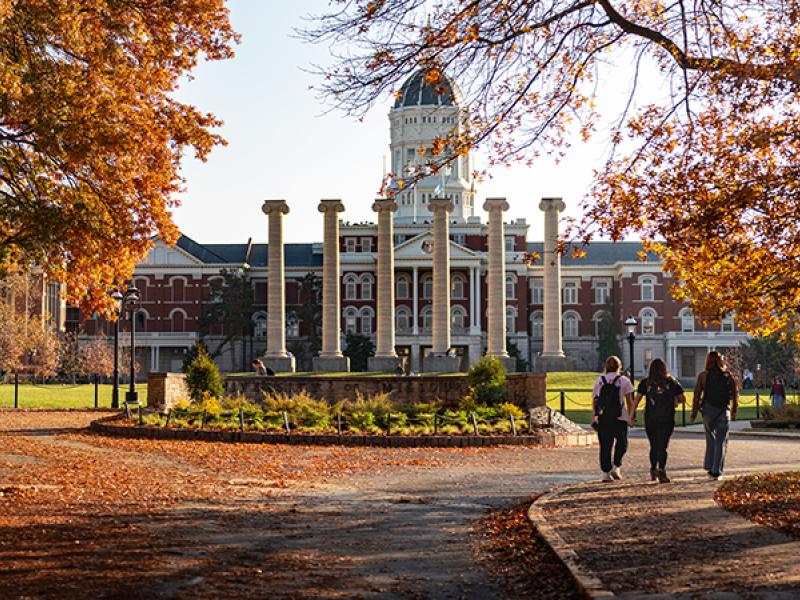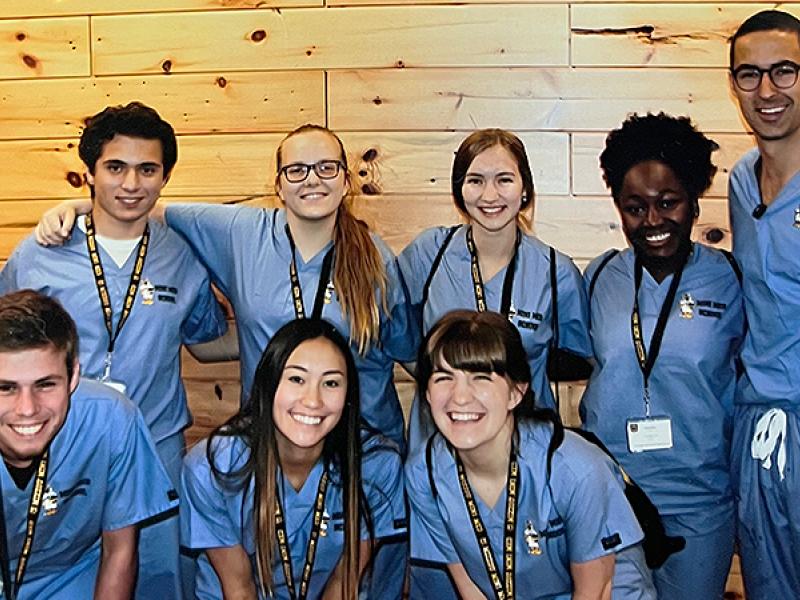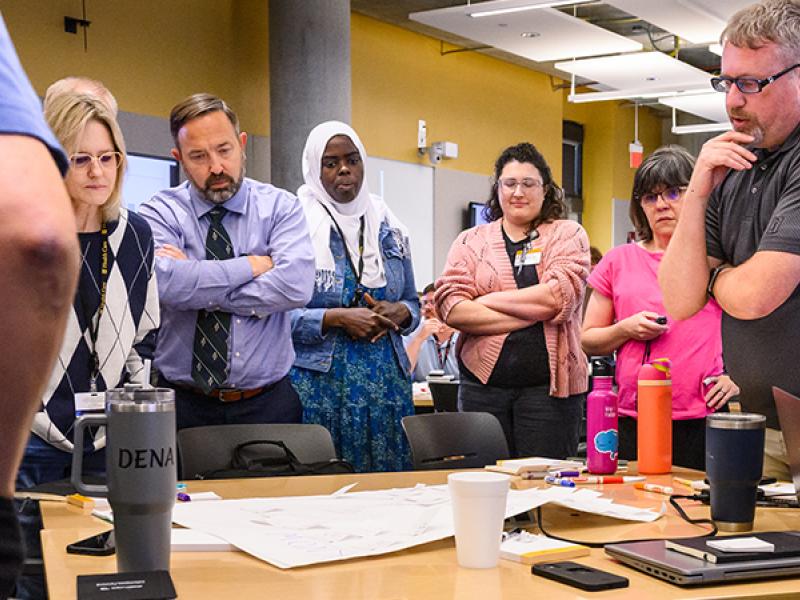Building on the skills and knowledge developed during the preclerkship blocks, the clerkship phase contains seven core clinical clerkships that offer students a range of experiences and opportunities to learn the fundamentals of good patient care.
Family and Community Medicine
In this clerkship, core learning experiences take place in ambulatory clinic settings. Students work with experienced clinicians and senior residents, spending time in both university teaching practices and community-based practices. Students also may see patients in emergency room, hospital and nursing home settings. Students will encounter a high volume of patients of all ages with a wide range of problems as well as undifferentiated problems.
- Clerkship Directors
- Columbia Associate Clerkship M4 Clinical Director
- Columbia Clerkship Coordinator
- Springfield Associate Clerkship Directors
- Springfield Clerkship Coordinator
Medicine
During this clerkship, students work with medicine inpatient services, where they learn to care for adult patients with acute and chronic illnesses. Emphasis is placed on the principles of differential diagnosis and problem-solving as well as the integration of basic science information into the art of patient care. Students also gain clinical experience in medical interviewing and physical examination.
- Clerkship Director
- Associate Clerkship Director
- Columbia Clerkship Coordinator
- Springfield Associate Clerkship Directors
- Springfield Clerkship Coordinator
Neurology
During this clerkship, students see patients with common neurological disorders and neurological emergencies in the outpatient and inpatient settings.
- Clerkship Director
- Associate Clerkship Director
- Columbia Clerkship Coordinator
- Springfield Associate Clerkship Directors
- Springfield Clerkship Coordinator
Obstetrics/Gynecology
In this clerkship, students rotate on the obstetric service, the gynecology service and the gynecologic oncology service, where they will see a broad range of patients in both inpatient and outpatient settings. They also attend lectures and interactive case presentations.
- Clerkship Director
- Associate Clerkship Director
- Columbia Clerkship Coordinator
- Springfield Associate Clerkship Directors
- Springfield Clerkship Coordinator
Pediatrics
During this clerkship, students have the opportunity to learn about common illnesses and abnormalities in children. Emphasis is placed on the importance of preventive and developmental aspects of child care. Lectures and case presentations correlate with the clinical experiences.
- Clerkship Director
- Columbia Associate Clerkship Director
- Columbia Clerkship Coordinator
- Springfield Associate Clerkship Directors
- Springfield Clerkship Coordinator
Psychiatry
During this clerkship, students see patients with psychiatric disorders in outpatient clinics and hospitals as well as on consultation services.
- Clerkship Director
- Associate Clerkship Director
- Columbia Clerkship Coordinator
- Springfield Associate Clerkship Directors
- Springfield Clerkship Coordinator
Surgery
In this clerkship, emphasis is placed on the diagnosis and treatment of patients with surgical concerns and problems. Students spend brief periods of time on surgical specialty services and a longer period of time on a more general surgery service. Each student attends faculty discussion sessions that cover objectives in the required textbooks and takes call under the supervision of surgical residents. Students participate in preoperative examinations and evaluations, assist during surgical procedures, and follow the postoperative management process. Students are encouraged to be engaged and prepared.
- Clerkship Director
- Clerkship Associate Directors
- Columbia Clerkship Coordinators
- Springfield Associate Clerkship Directors
- Springfield Clerkship Coordinator





